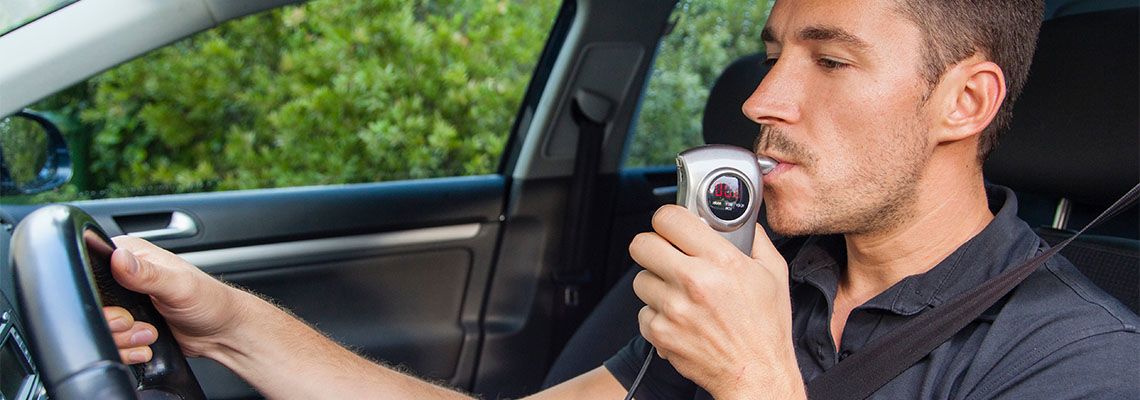
Understanding DUI Tests
The tests you may be asked to take if you are pulled over for driving under the influence (DUI) of alcohol or drugs can be confusing. What do they measure? Which ones can you refuse? Which ones should you refuse, and what are the consequences if you do?
Between 80,000 and 90,000 drivers are charged with DUI in Texas in a year. If you are one of them, you should learn about the tests involved. Challenging test results may be the key to avoiding conviction on the initial DUI charge. Reduced or dismissed charges or a not-guilty verdict could save you the long-term repercussions of a conviction.
The Linder Firm represents clients charged with DUI in Dallas, Texas, the Dallas Metro, and in North Texas. As a former prosecuting attorney, Attorney Phillip Linder understands how cases are built on tests and test results. As a skilled criminal defense attorney, he understands the weaknesses and loose ends of the tests as well. Contact him today to set up a time to discuss your case.
Why Do I Have to Consent to Any DUI Tests?
When you operate a motor vehicle in Texas, you provide what is known as “implied consent” to submit to a test of your breath, blood, or urine to determine the presence of alcohol or drugs in your system while doing so. In other words, law enforcement does not need to obtain your consent but rather, your consent is given because you are in control of a motor vehicle.
That said, law enforcement is required to have probable cause to pull you over on suspicion of driving under the influence. The legal requirement for probable cause protects you from a violation of your 4th Amendment right prohibiting illegal search and seizure.
What’s the Difference Between a Blood Alcohol Test and a Sobriety Test?
A blood alcohol concentration test (BAC) measures the percentage of alcohol in your system. In Texas, it must be lower than 0.08% for most drivers, less than 0.04% for commercial drivers, and no detectable amount is allowed if the driver is under the age of 21.
A DUI blood test also measures the presence of any chemicals in the system, including illegal drugs, prescription medications, and other substances. Submission to a blood test, breath test, or test of your urine is required under the implied consent law, and there are consequences if you refuse.
Sobriety tests, or field sobriety tests, are conducted by law enforcement at the scene of the stop. These tests, discussed below, are unreliable. Performance on field sobriety tests can be affected by multiple factors, including but not limited to flashing lights, uneven ground surfaces, a lack of physical coordination, a health condition or disability, as well as anxiety and fear.
Different Types of Sobriety Tests
There are three common sobriety tests law enforcement exercises in the field. For each test, the officer assesses your ability to understand directions as well as clues during the test.
The horizontal gaze test measures your ability to track the movement of an object horizontally with your eyes. The officer may ask you to follow a finger or pen moving side to side with your eyes.
The walk and turn test involves walking in a straight line, heel to toe, for eight steps, turning on the ninth step, and repeating the walk in the opposite direction. The officer is judging you based on your start, balance, coordination of heel to toe, using your arms to balance yourself, failing to turn on the ninth step, and your ability to maintain balance as you turn around.
The one-leg stand is what it sounds like. The officer will ask you to stand on one foot while holding your other foot in the air, parallel to the ground, with your hands at your sides, while counting. They will be assessing clues, such as how long you can remain standing on one foot, dropping the suspended foot, and putting your arms out to balance yourself.
What Happens if I Refuse to Submit to a Test?
You have a right to refuse to submit to a sobriety test because the implied consent law does not apply to them. In fact, you should politely refuse to take them because your poor performance can be used as evidence against you, although your refusal to submit to them cannot.
The BAC, breath, and urine tests, however, are subject to the implied consent law. There are consequences for refusal. You will face criminal charges separate from the DUI charge and your driver’s license will be revoked automatically. The fact that refused can be used as evidence against you in the prosecution of the DUI charge. Moreover, penalties for refusal include losing your driving privileges for 180 days to two years and a criminal conviction.
You Have Rights. Learn Them. Use Them.
You are not powerless under Texas DUI laws. Stops without probable cause can be challenged as a violation of your 4th Amendment rights. If successfully challenged, all evidence connected to the stop becomes inadmissible.
You also have the right to refuse to answer questions other than your name, address, and insurance coverage. You may have an attorney present before answering any other questions.
You have the right to refuse to take field sobriety tests without penalty, although must submit to a test of your blood, breath, or urine under the implied consent law.
Attorney Phillip Linder will use your rights to defend you against any DUI charges. Call The Linder Firm in Dallas, Texas, to talk about your case.
